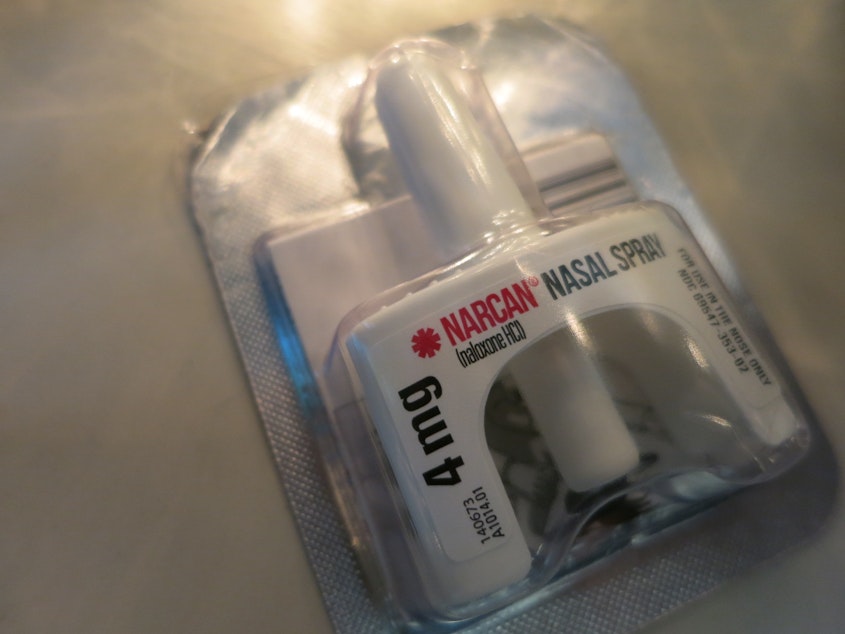More overdose deaths are likely coming nationwide. What about in Washington state?

A new study forecasts the nationwide opioid epidemic is far from over.
The study published this month in the journal JAMA Network Open estimates that overdose deaths are going to continue to rise over the next six years nationwide and reach nearly 82,000 people a year by 2025.
The study also estimates that by then one and a half million people will be on illicit opioids, such as heroin, nationwide.
The study forecasts a few scenarios of how many more people will misuse prescription pills, a common pathway to heroin.
Best-case scenario, opioid overdoses will kill around 580,000 people between 2016 and 2025. But pessimistically, as many as 1.2 million people could die.
Yet, as death rates have soared across the country, in Washington state the overall numbers of people killed by opioids have hovered around 700 people a year for a decade.
Sponsored
“I don’t think stable rates are really where we want to be, considering that we have two people that die, on average, every day here in Washington due to opiate related overdoses,” said state health officer Dr. Kathy Lofy.
Ten years ago, Washington state implemented the first guidelines in the country advising physicians on the appropriate dosage and circumstances for prescribing opioids. Lofy said it’s hard to know exactly if that is what caused the state’s opioid overdose deaths to level off instead of spiking, as they have in other states.
If you break down those numbers further, though, you’ll see fewer people dying of overdoses of prescription opioids each year, as more are killed by heroin and fentanyl.
“We are very, very concerned that we’re starting to see more deaths related to fentanyl, and we think this is because fentanyl is has been slowly creeping into our illicit drug supply,” Lofy said.
“I would expect deaths to stay about level unless fentanyl becomes way more widespread, which could increase deaths, or we make treatment medications literally easier to get than illicit opioids,” said Caleb Banta-Green, a public health researcher at the University of Washington.
Sponsored
France, for example, was able to increase access to the treatment medication buprenorphine and reduced that country’s overdose deaths by 79 percent in four years.
“I think widespread, easy access to buprenorphine and methadone are likely to be, by far, the most effective way to reduce deaths,” Banta-Green said.
Access to medication to treat addiction is a big priority for Washington state and King County.
“Medication assisted treatment is an extremely effective tool to treating people with opiate use disorder,” said Brad Finegood, public health advisor for Seattle and King County.
Research shows drugs such as buprenorphine, also called Suboxone, and methadone reduce someone’s risk of overdose by half.
Sponsored
This year the number of places offering such treatment in King County has more than doubled to over 100, Finegood said.
“We’re working to make treatment as available to everybody as their drug dealer is,” he said.
Last year 246 people died from opioid overdoses in King County. In 2017, 739 died from opioids statewide, according to the most recently available data. Across the state, at least another 3,200 overdoses were reversed using the medication naloxone, according to the state Department of Health.
If you or someone you know needs help with addiction or mental illness, you can call the Washington Recovery Help Line 24 hours a day at 1-866-789-1511.
Correction, 2:05 p.m., 2/4/2019: A previous version of this story included partial, preliminary data on opioid overdose deaths in King County and Washington state. They have been replaced with the most recent confirmed numbers.




